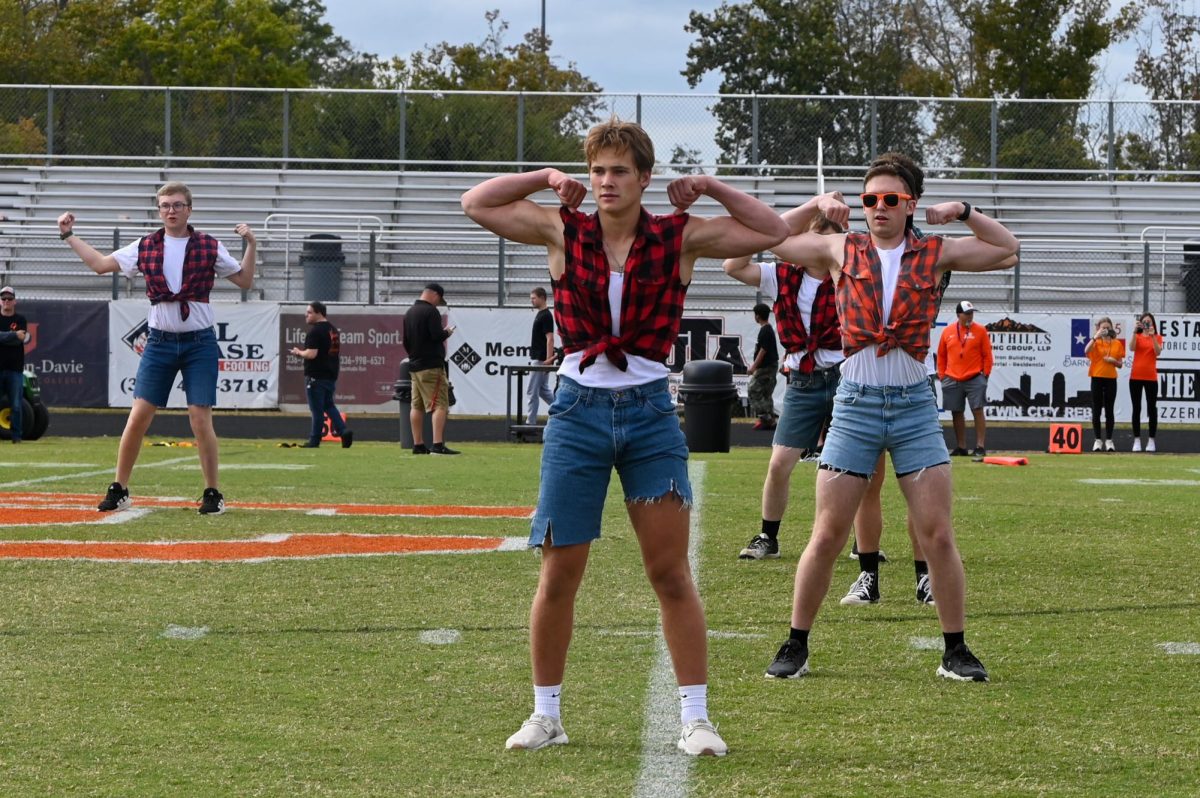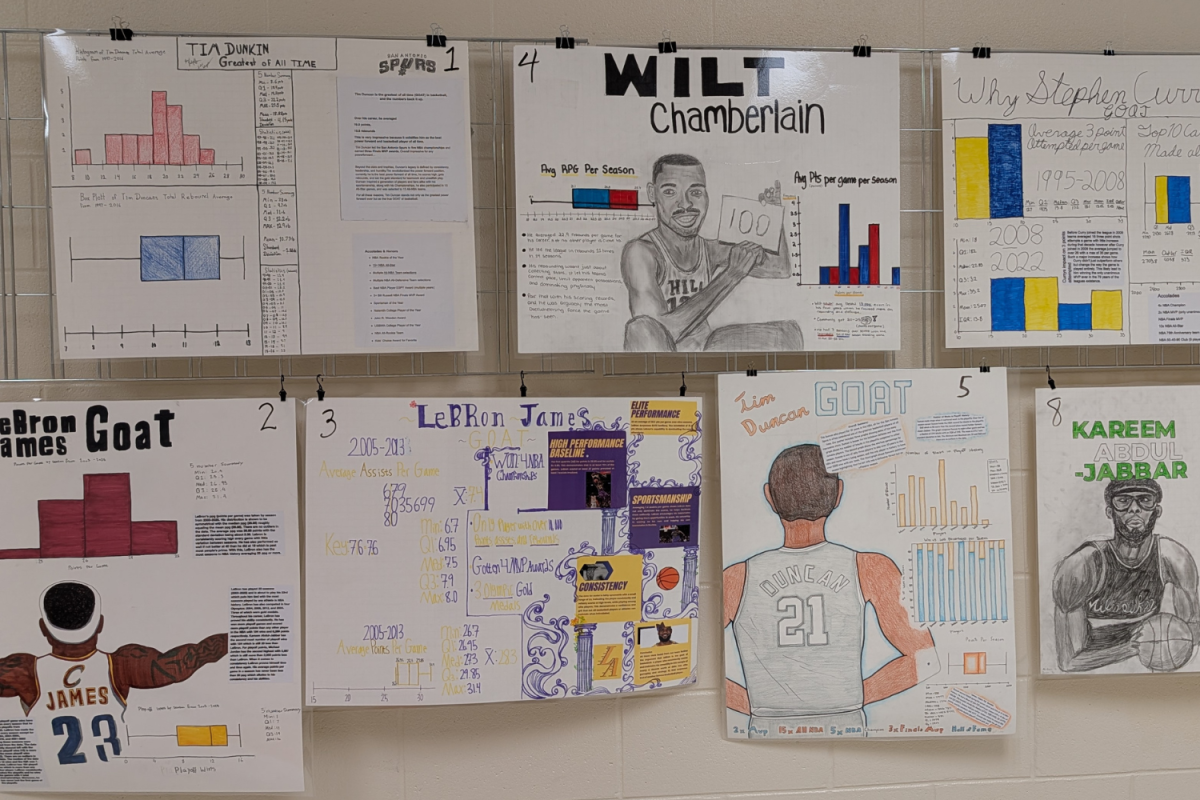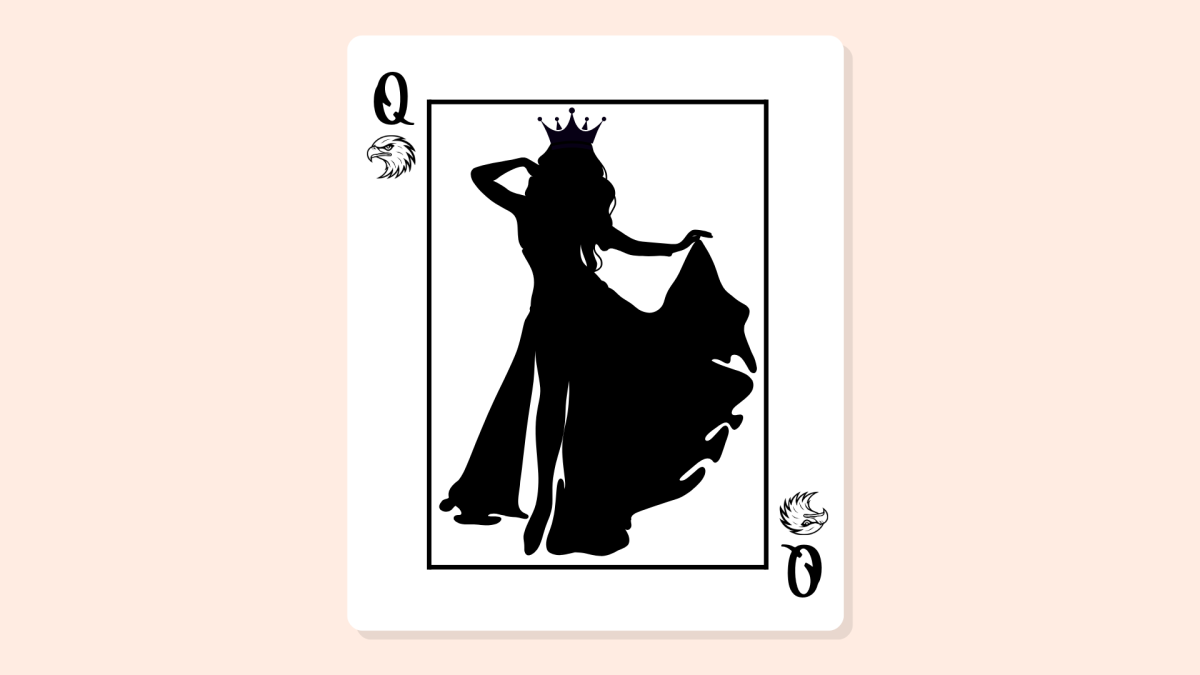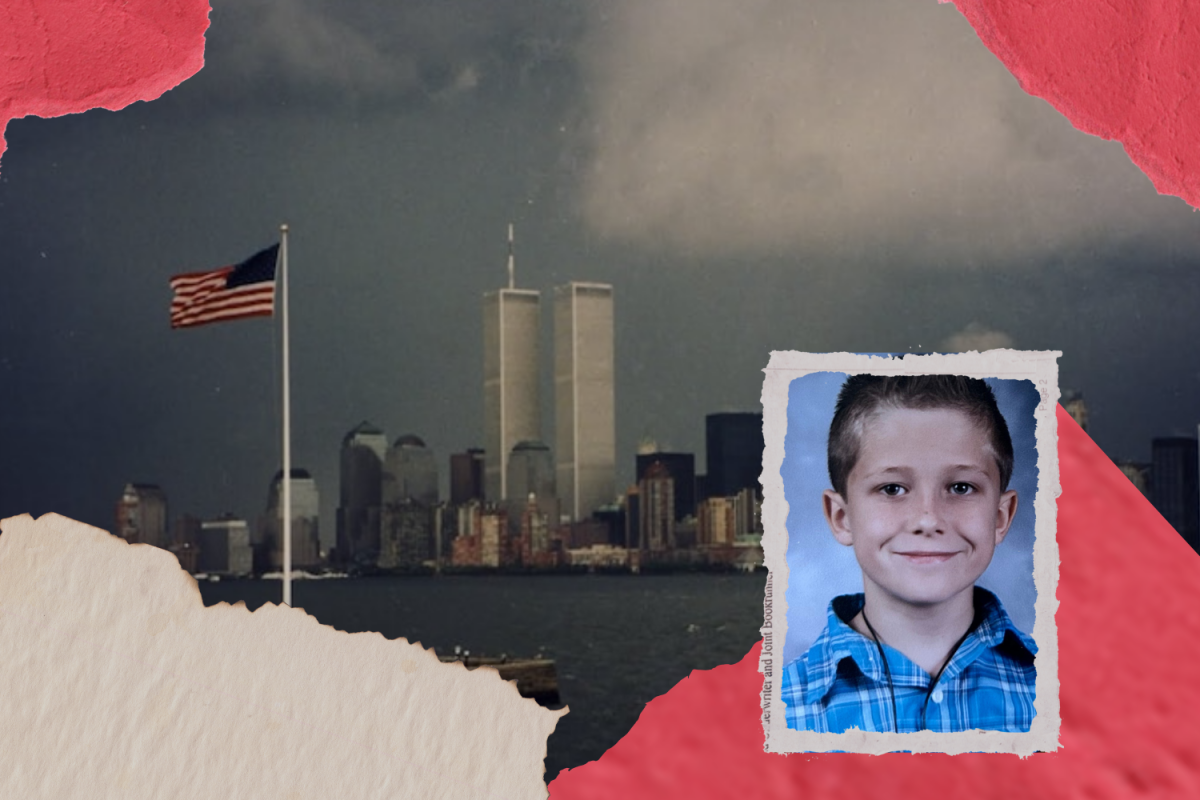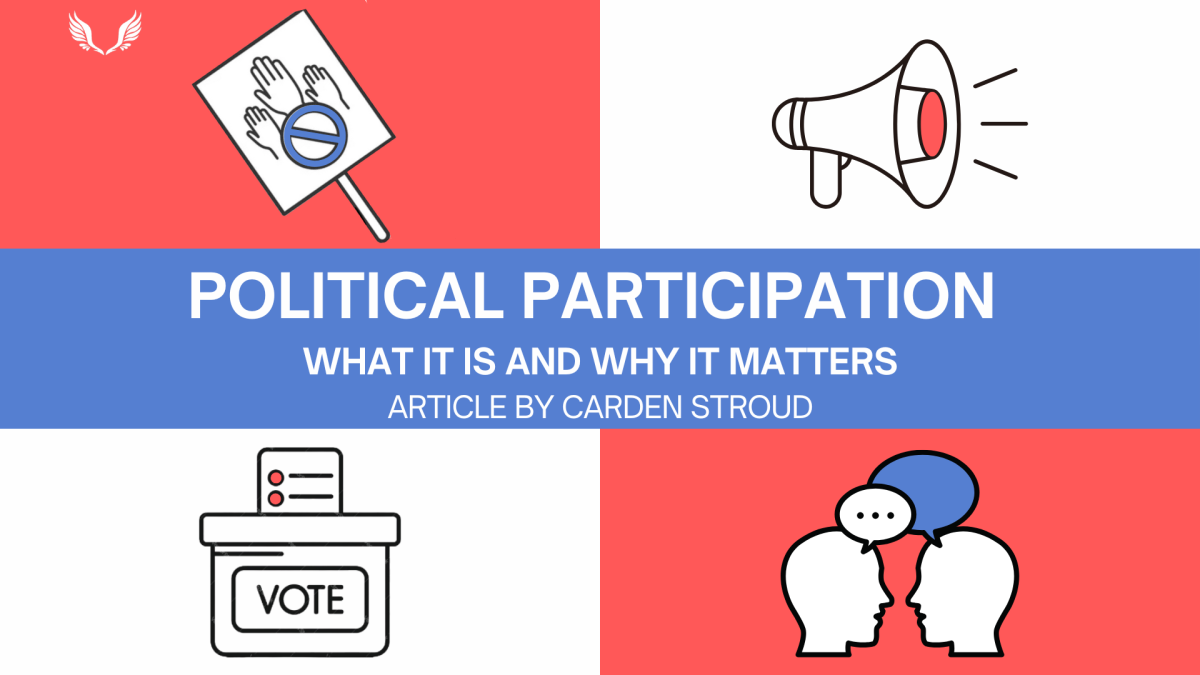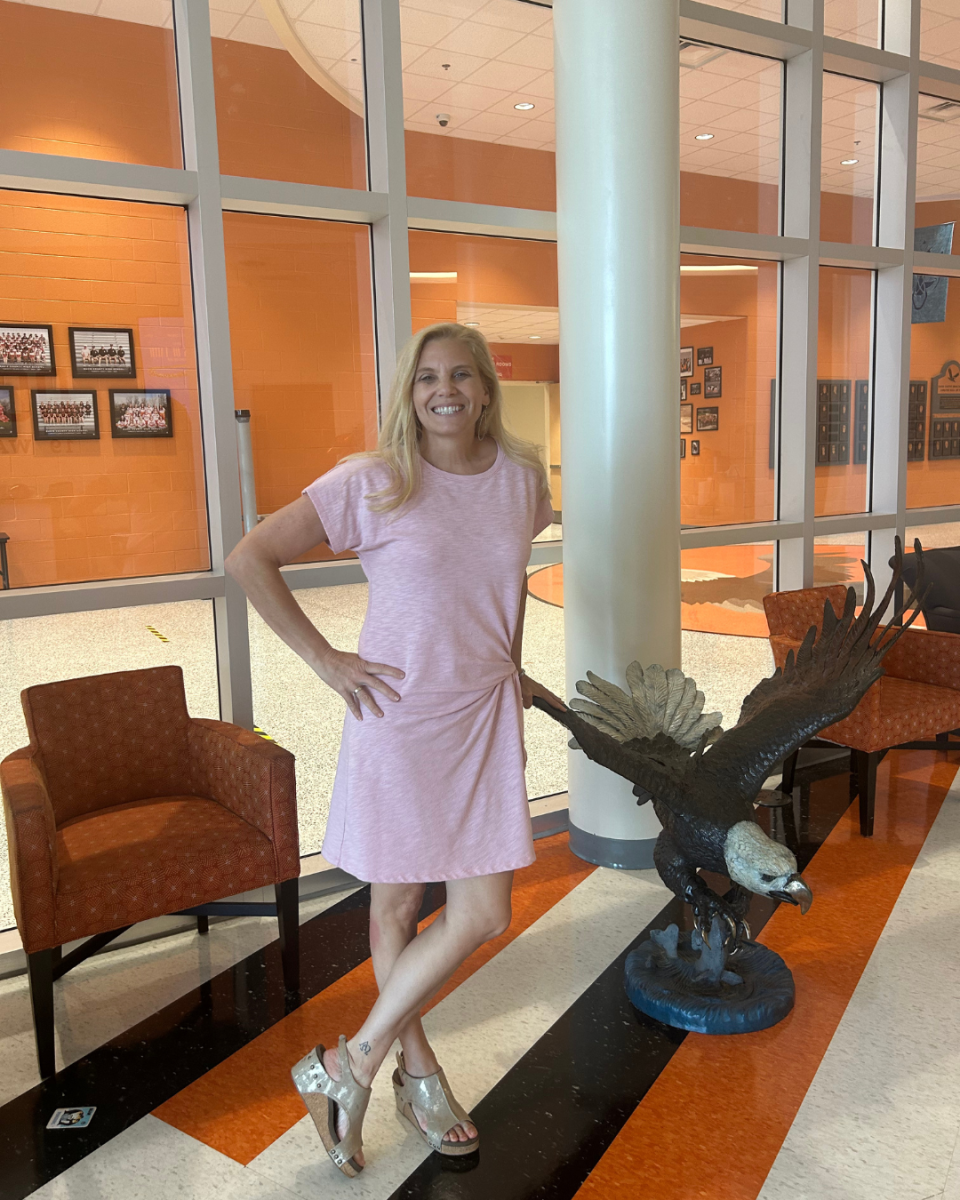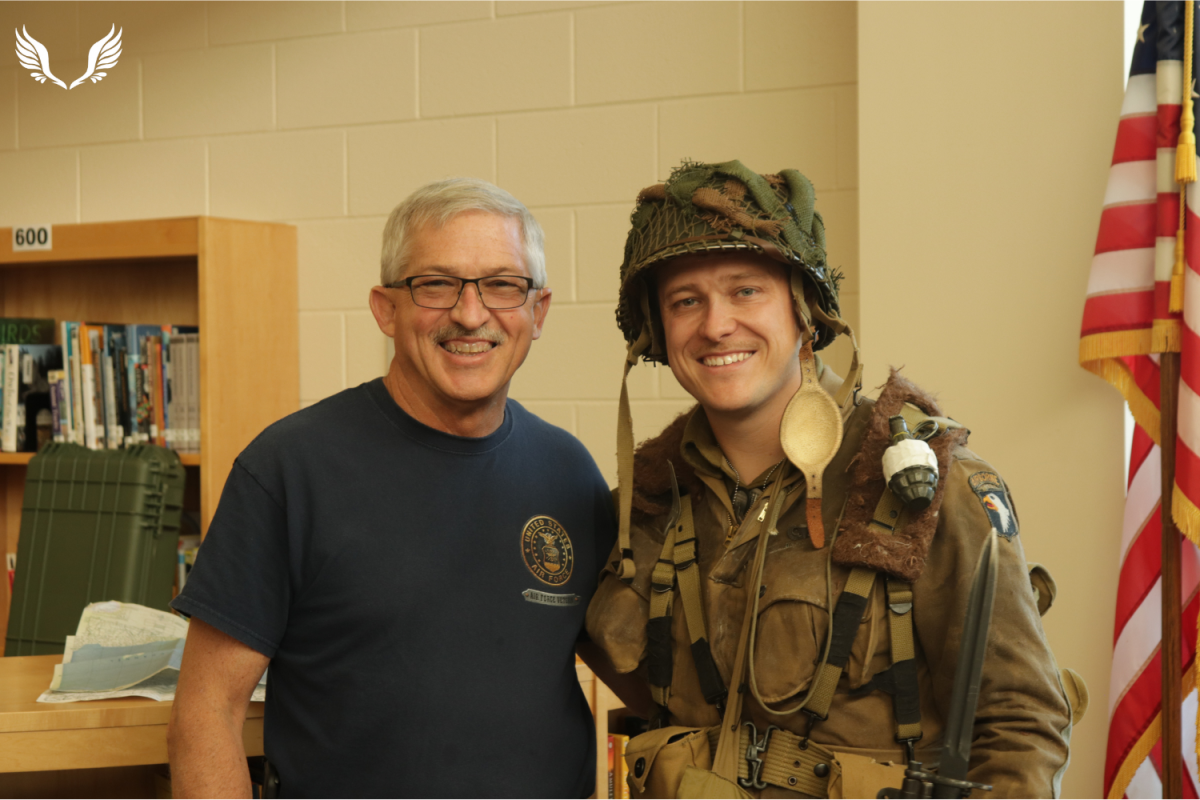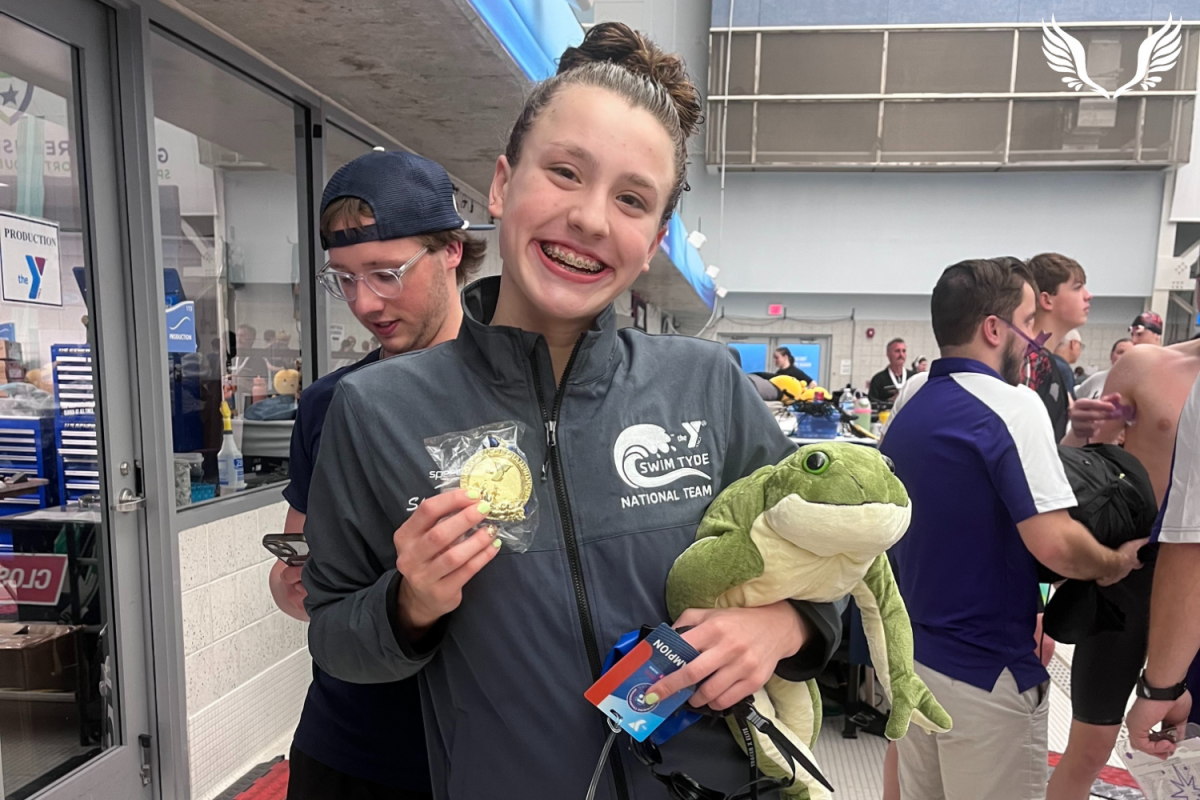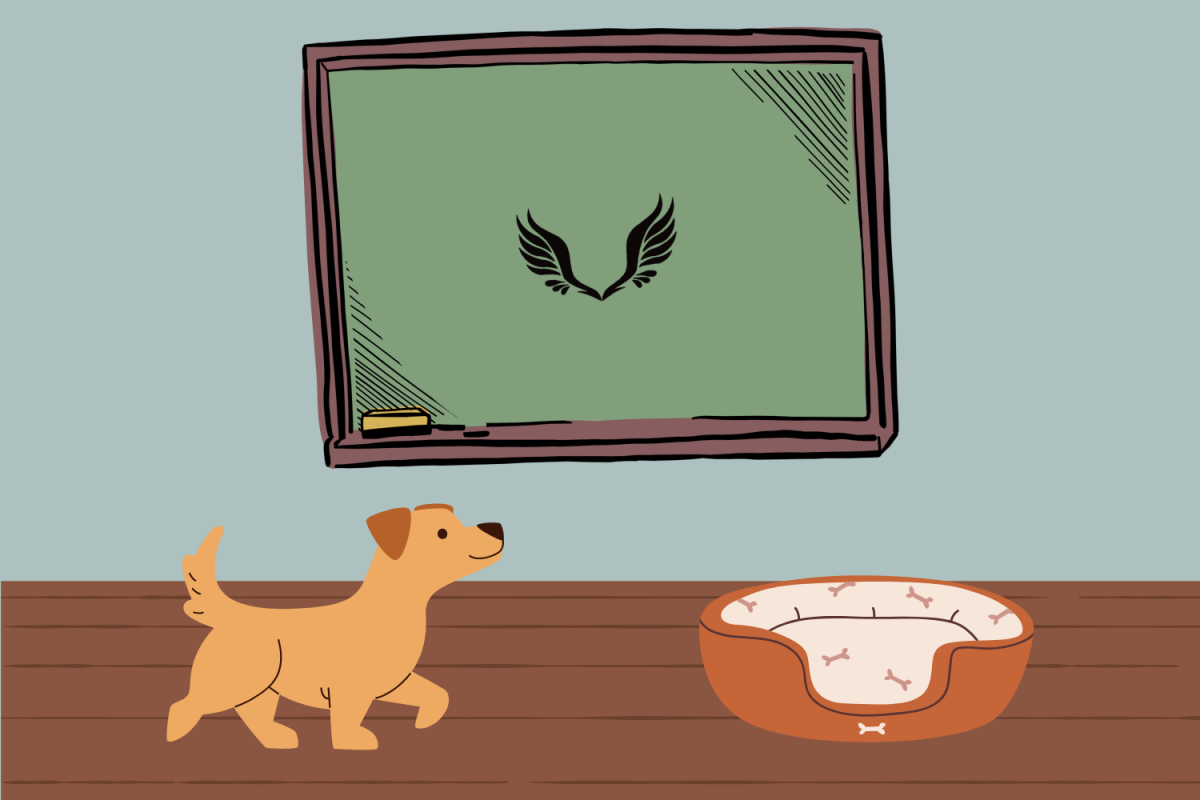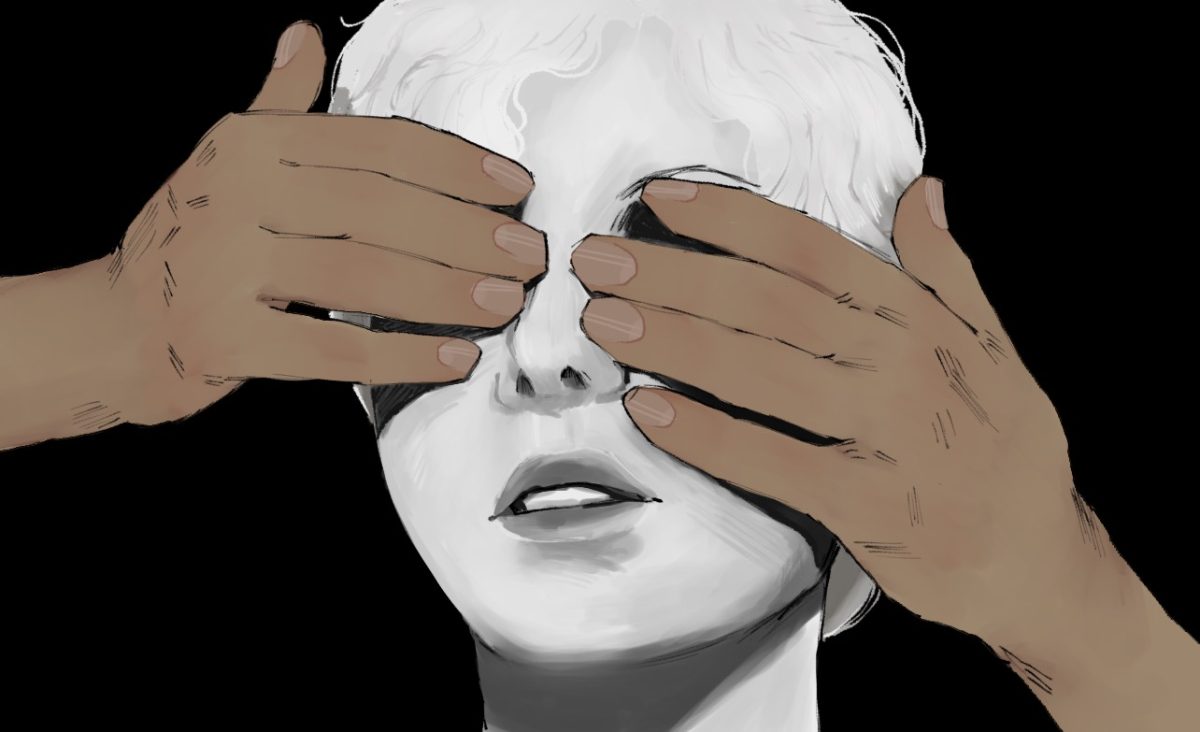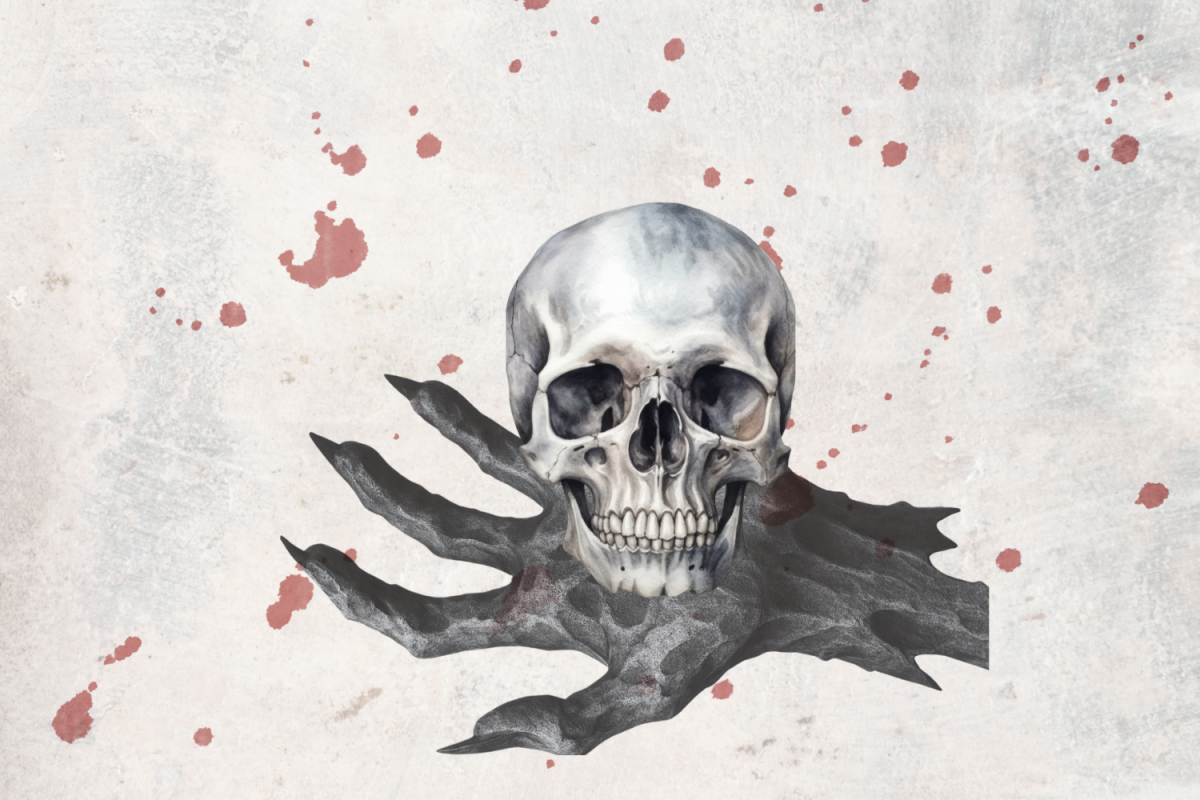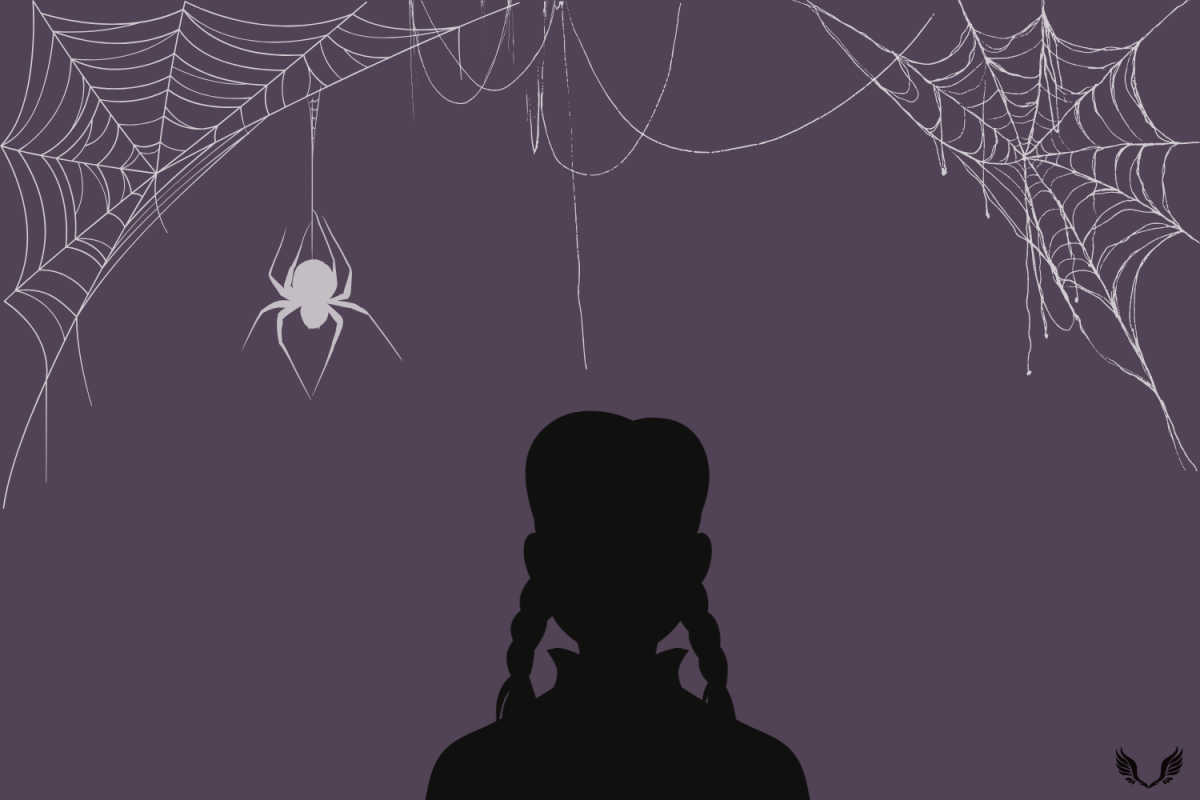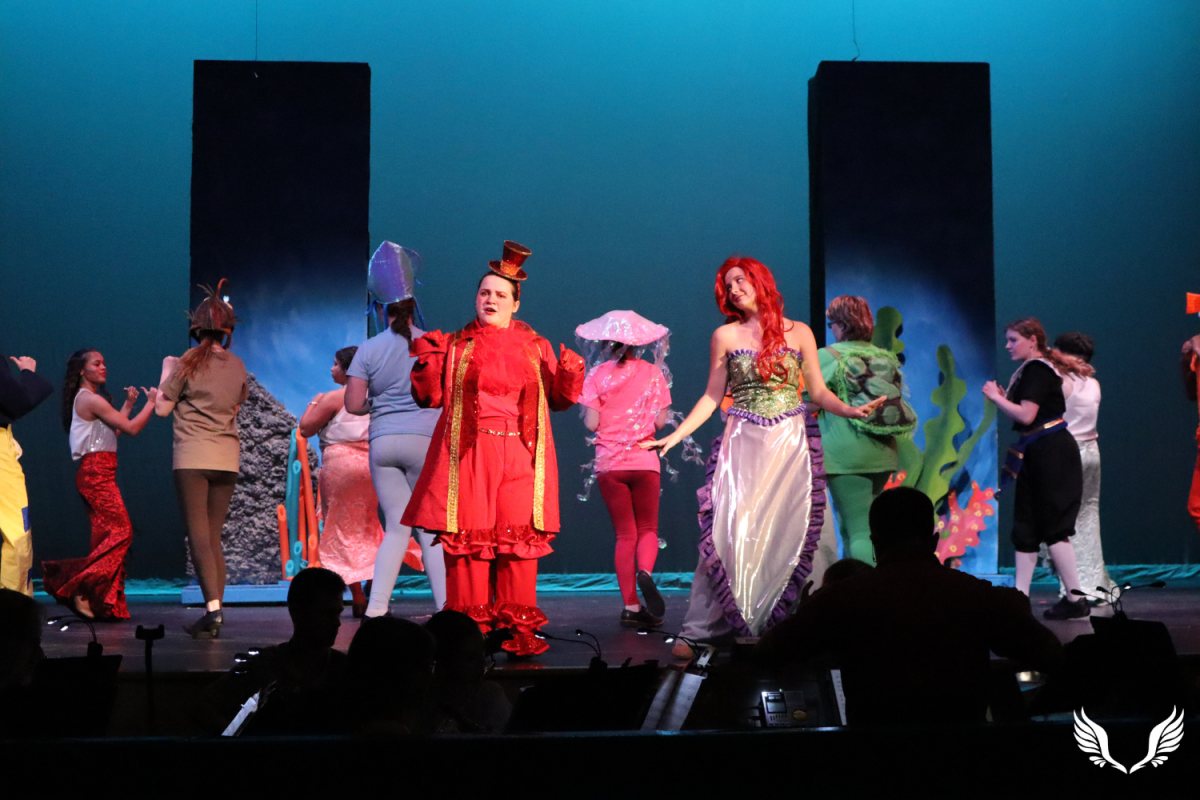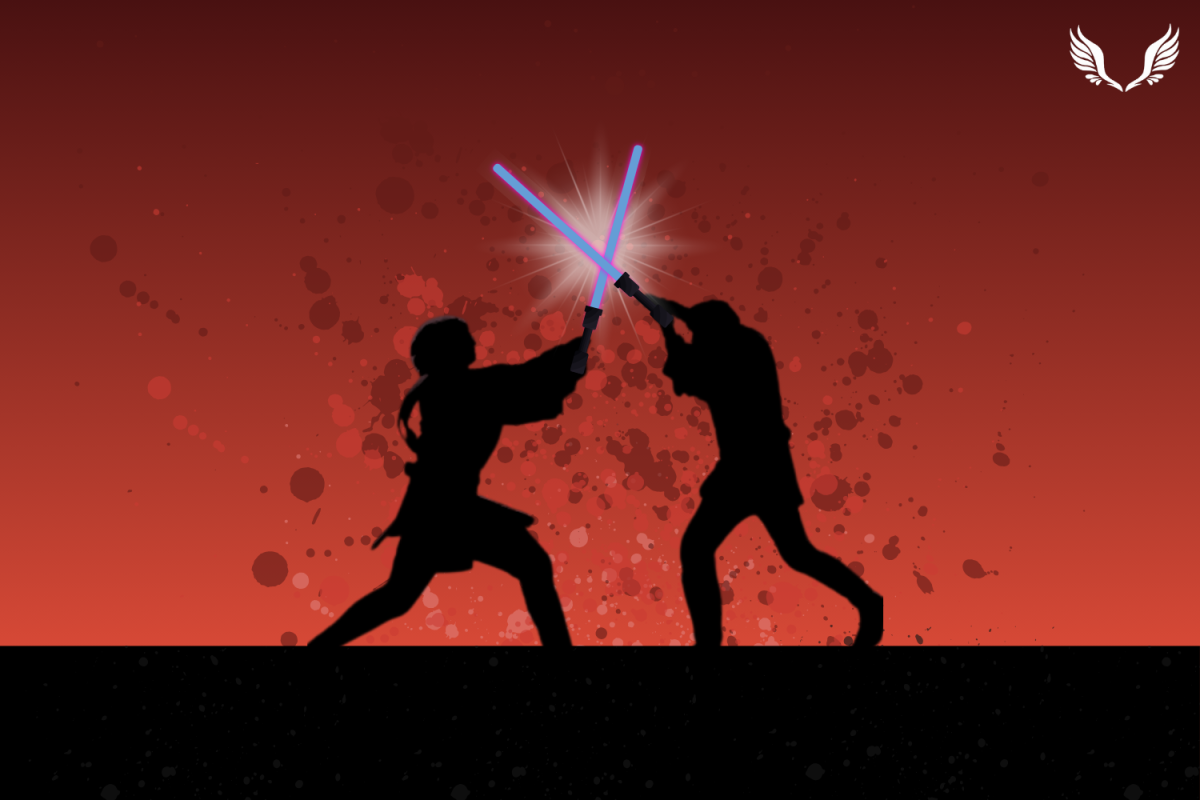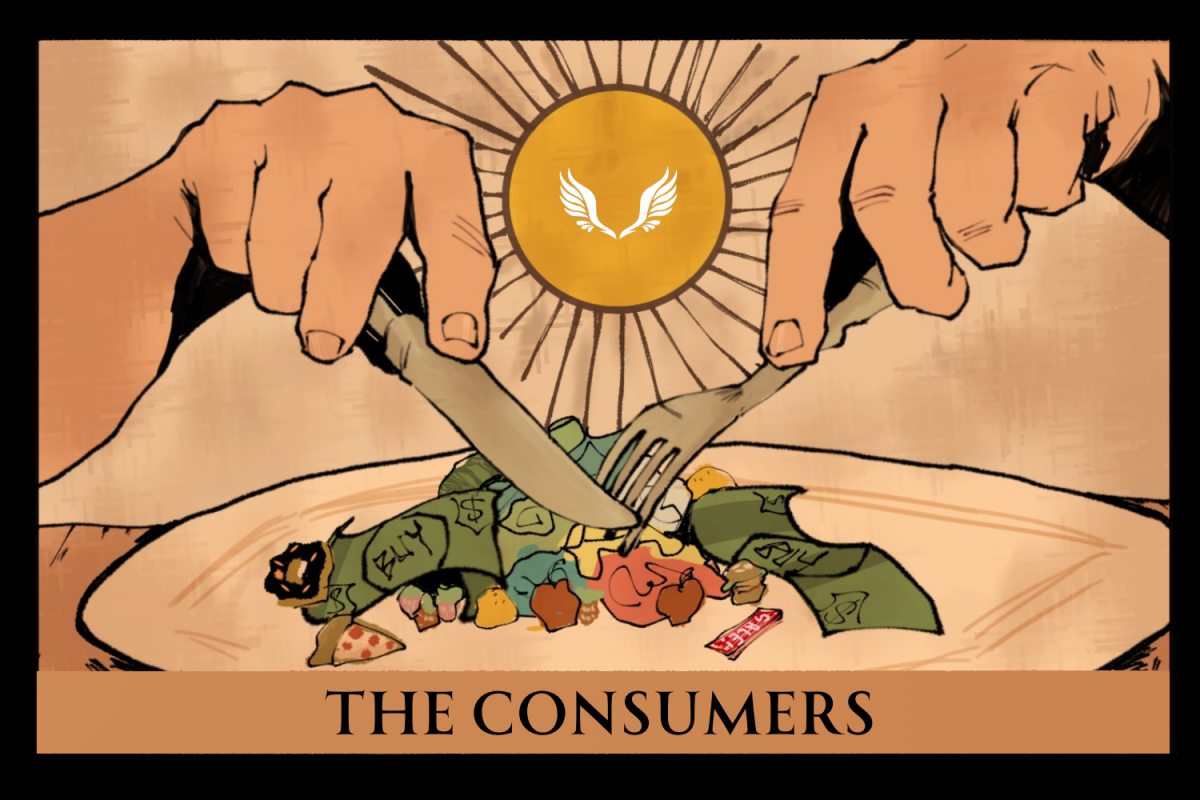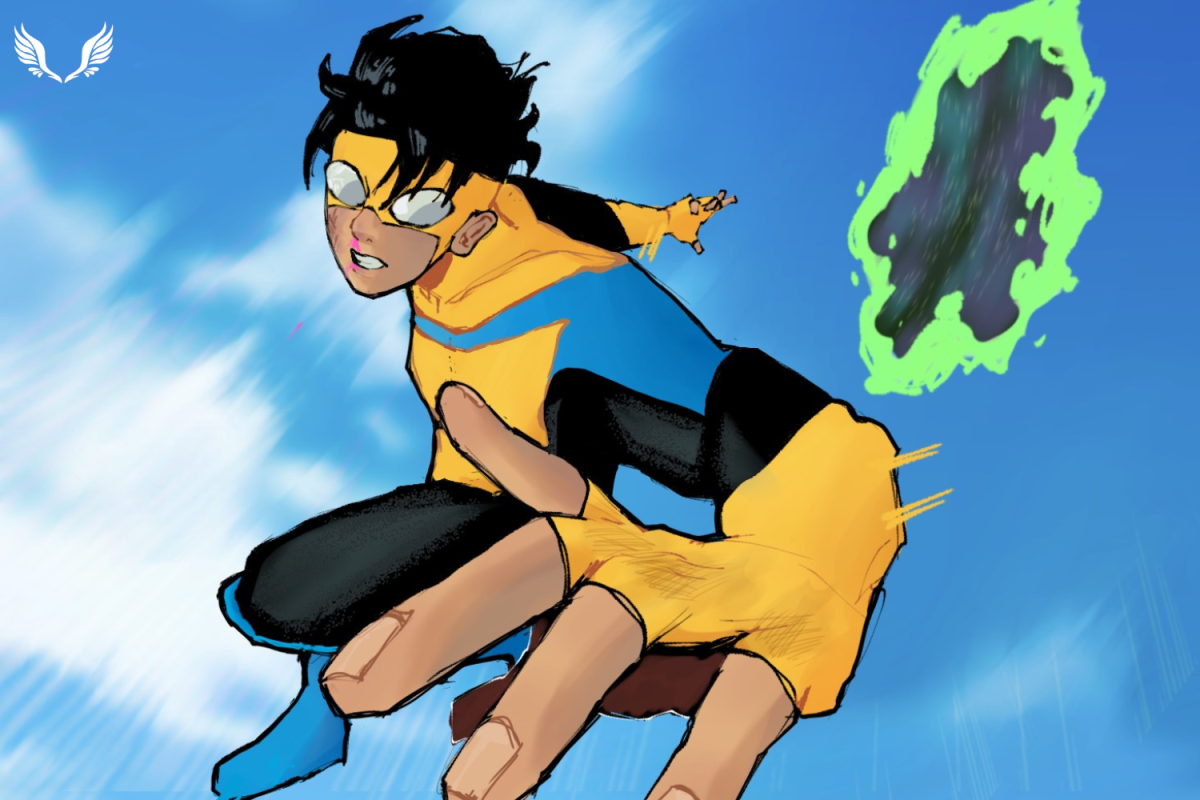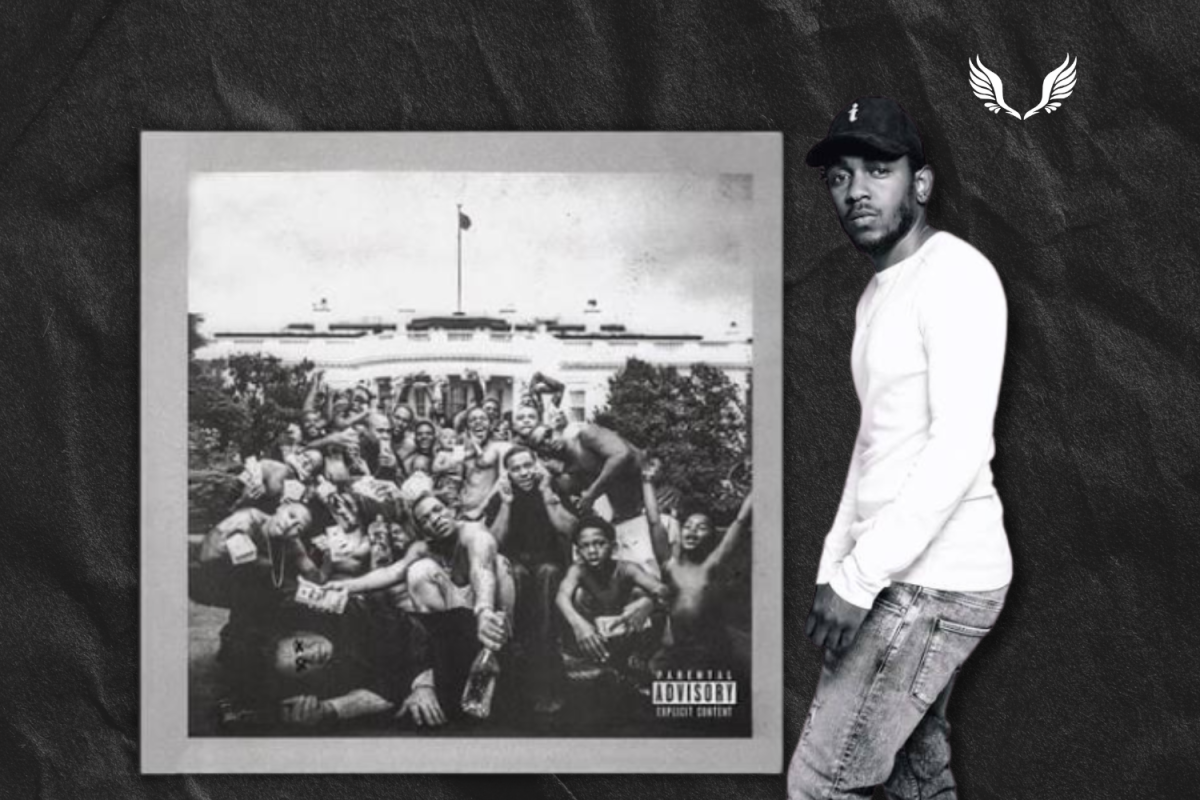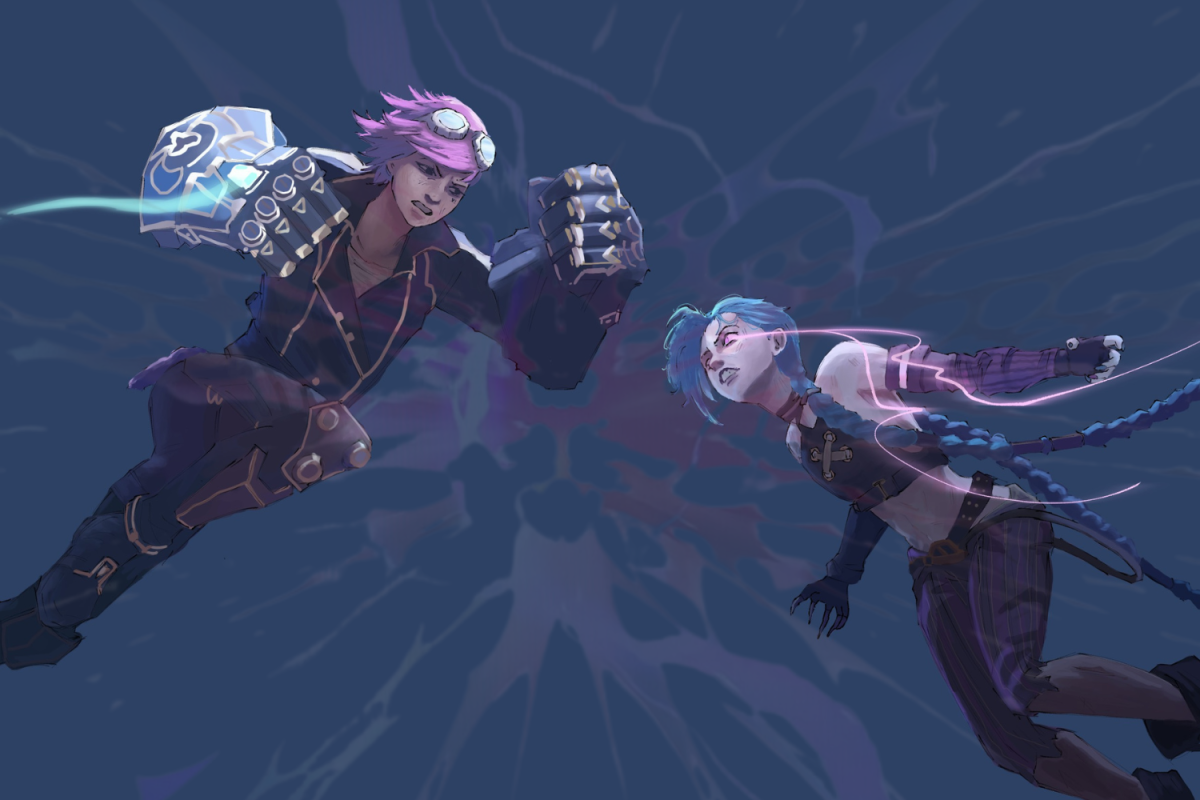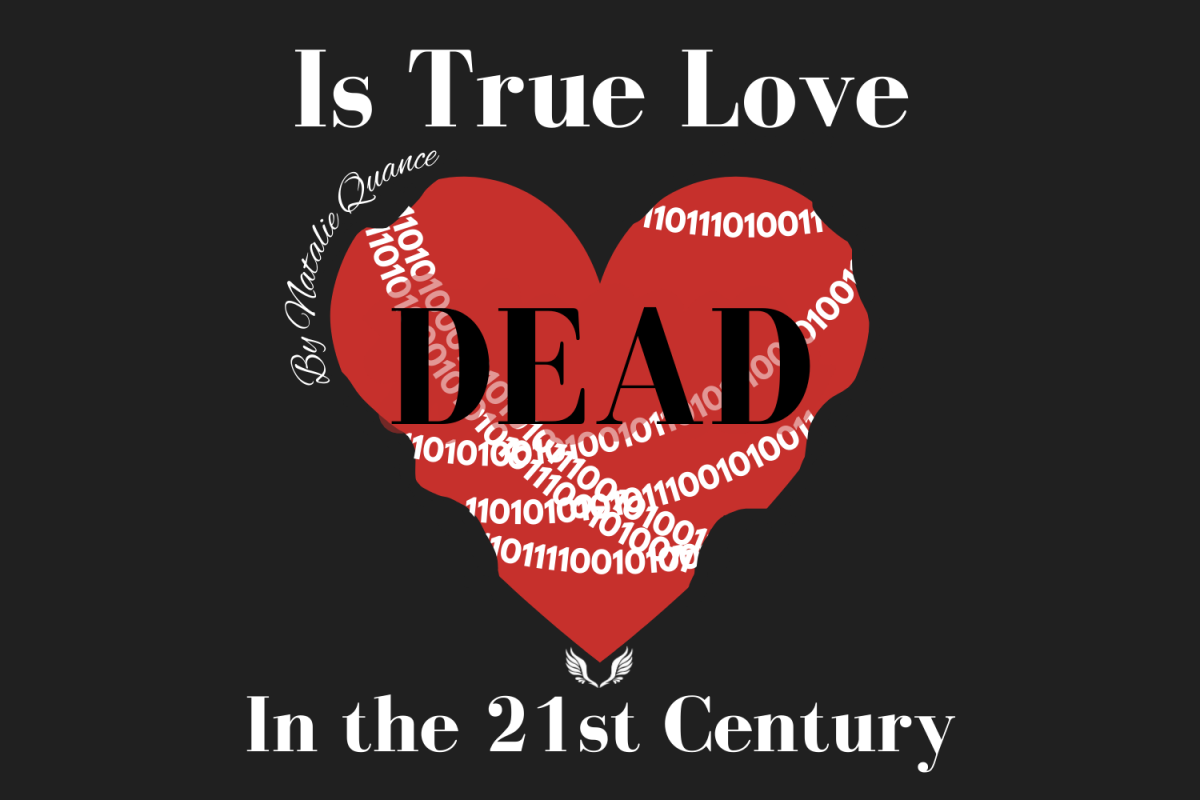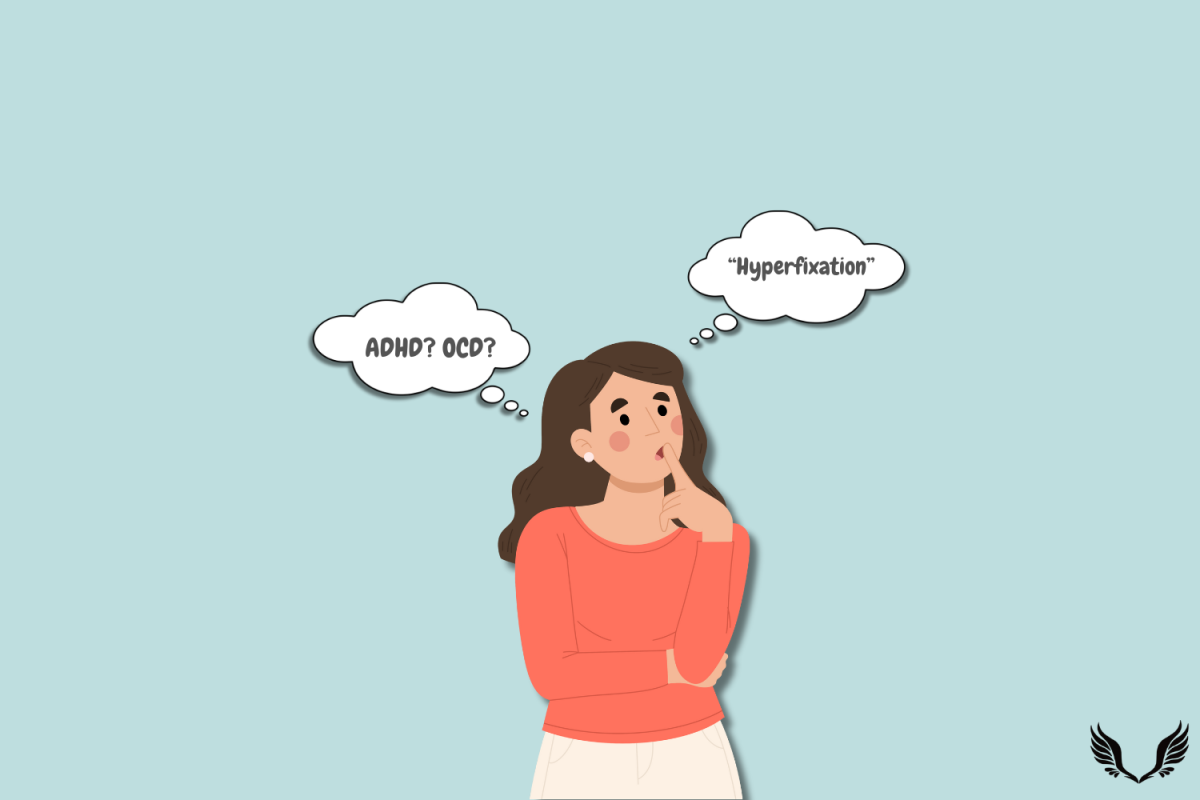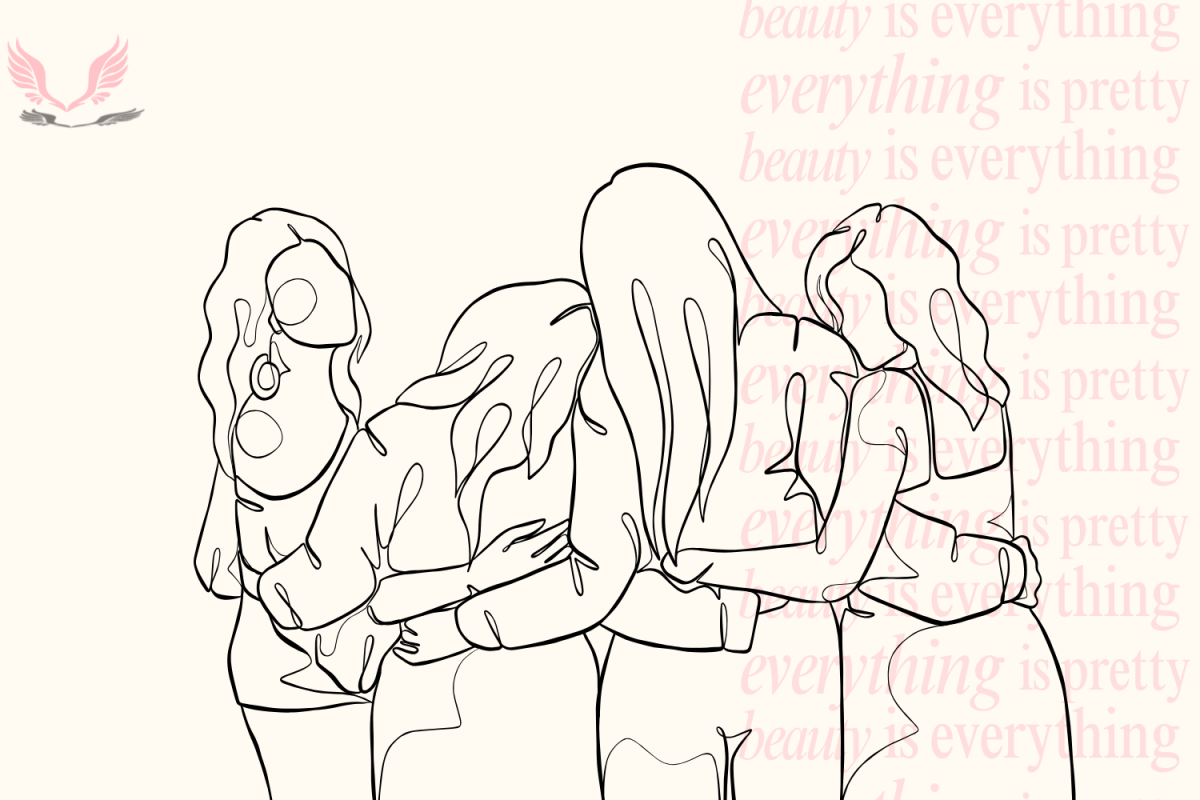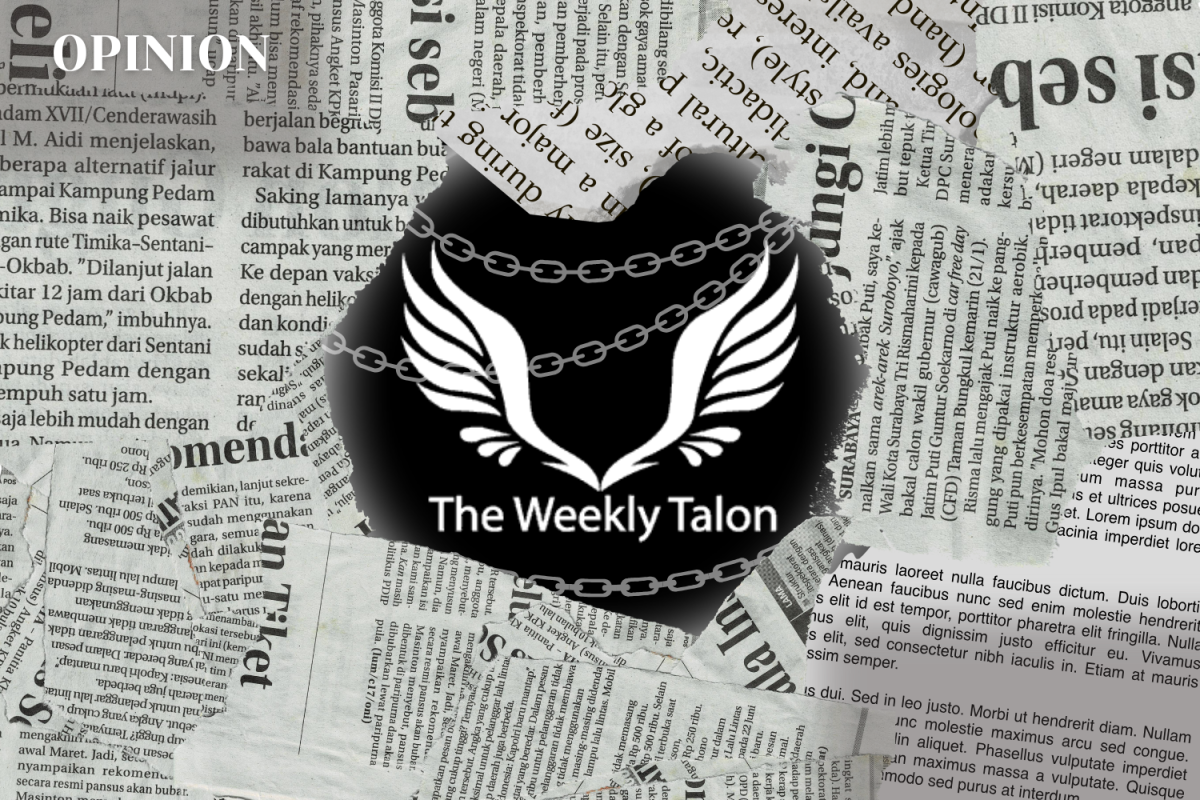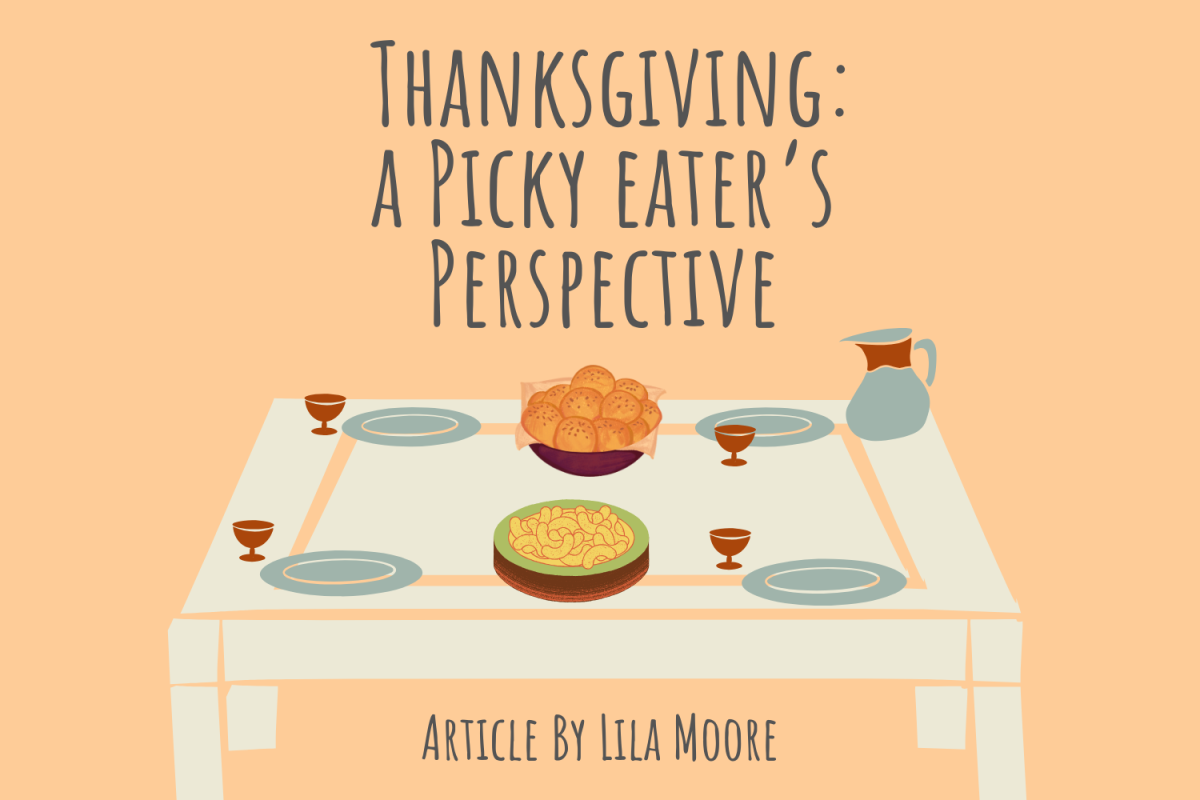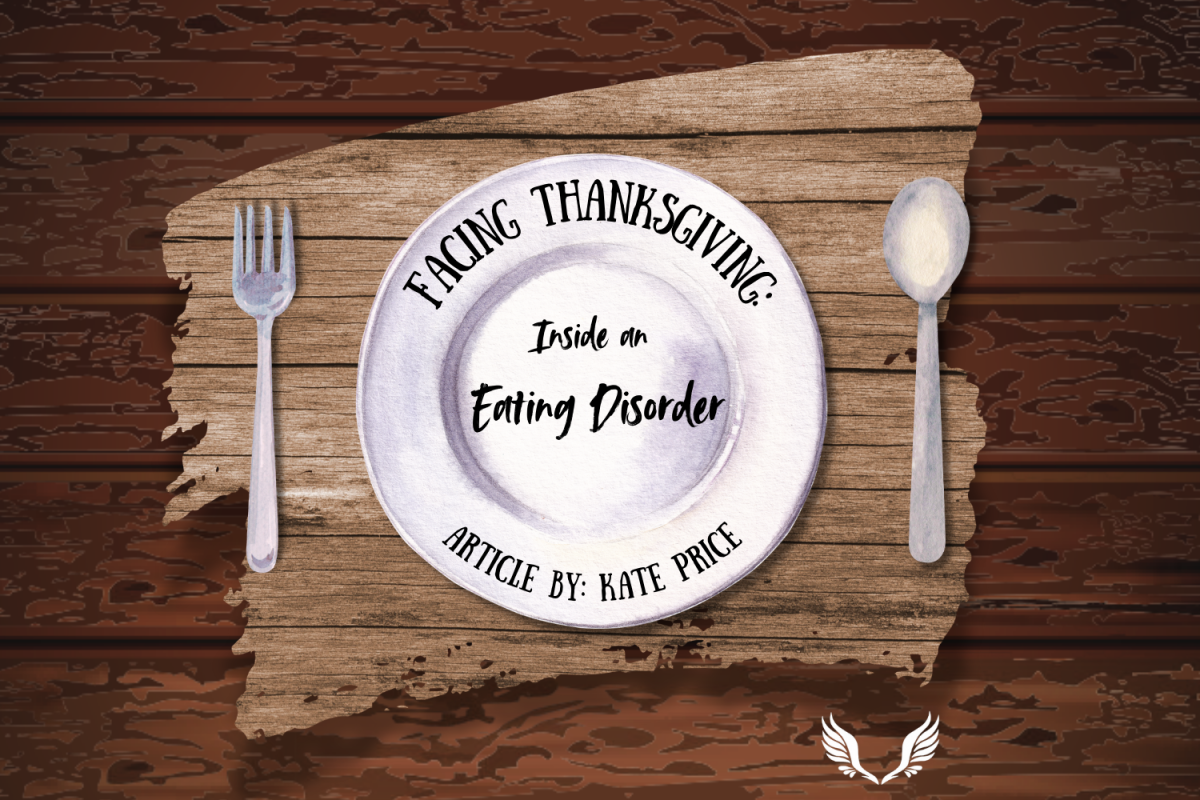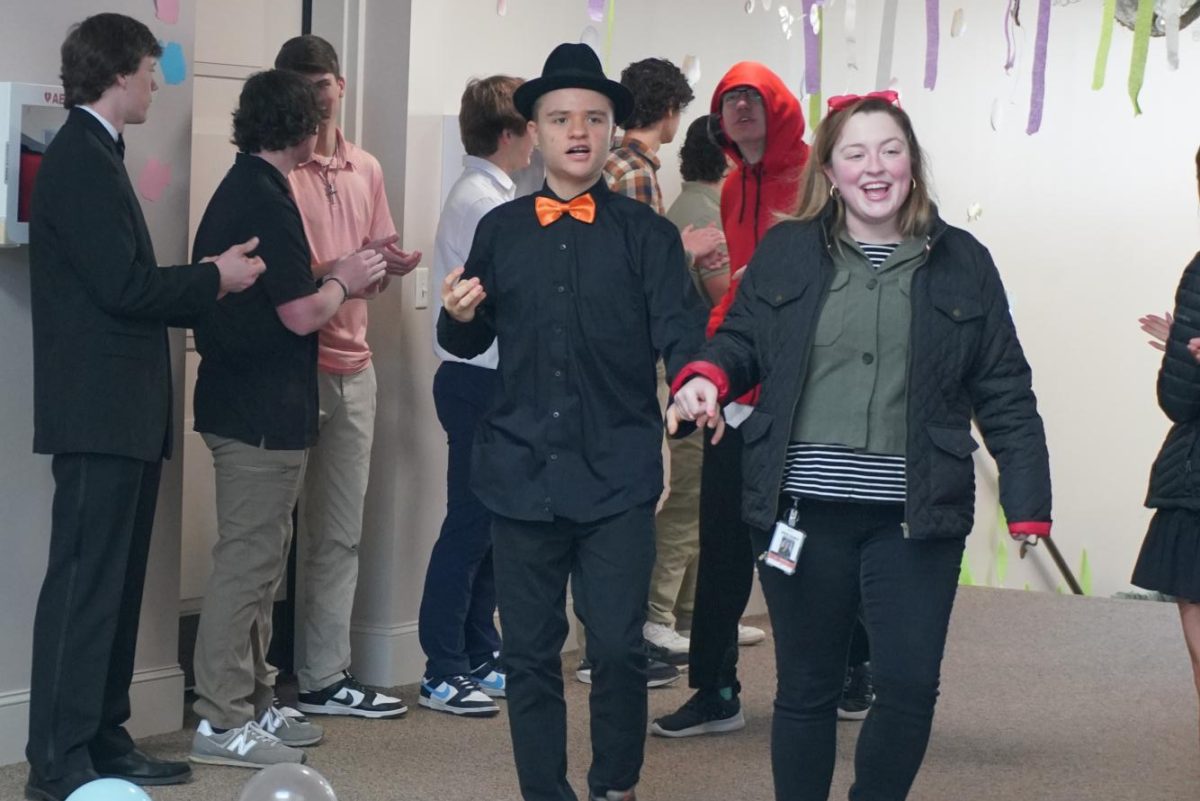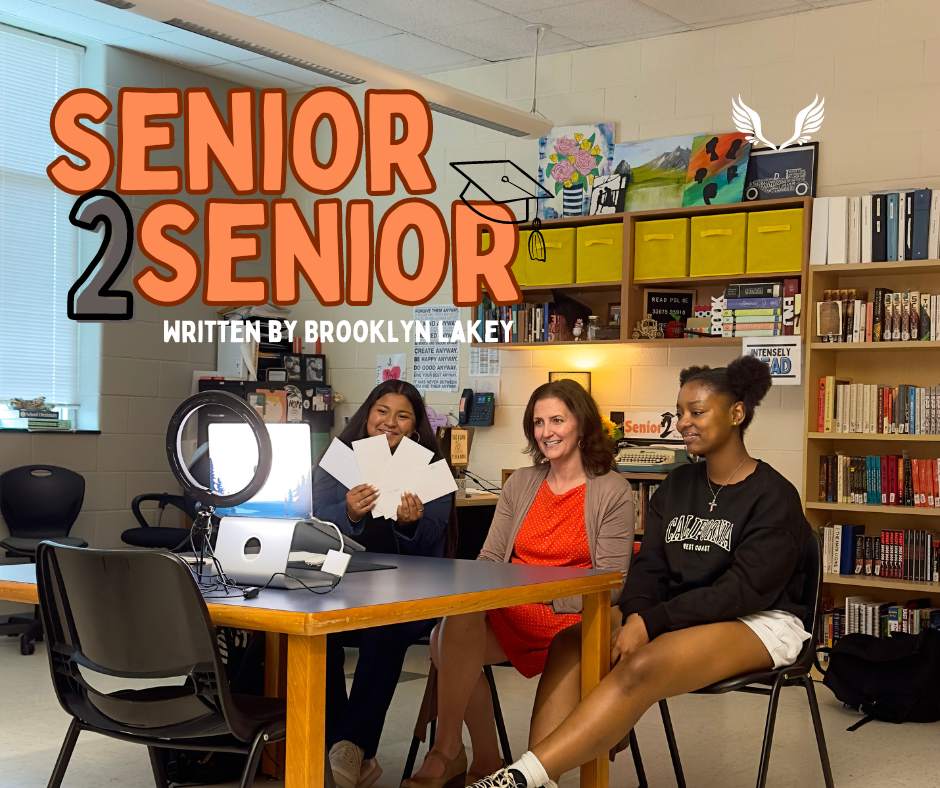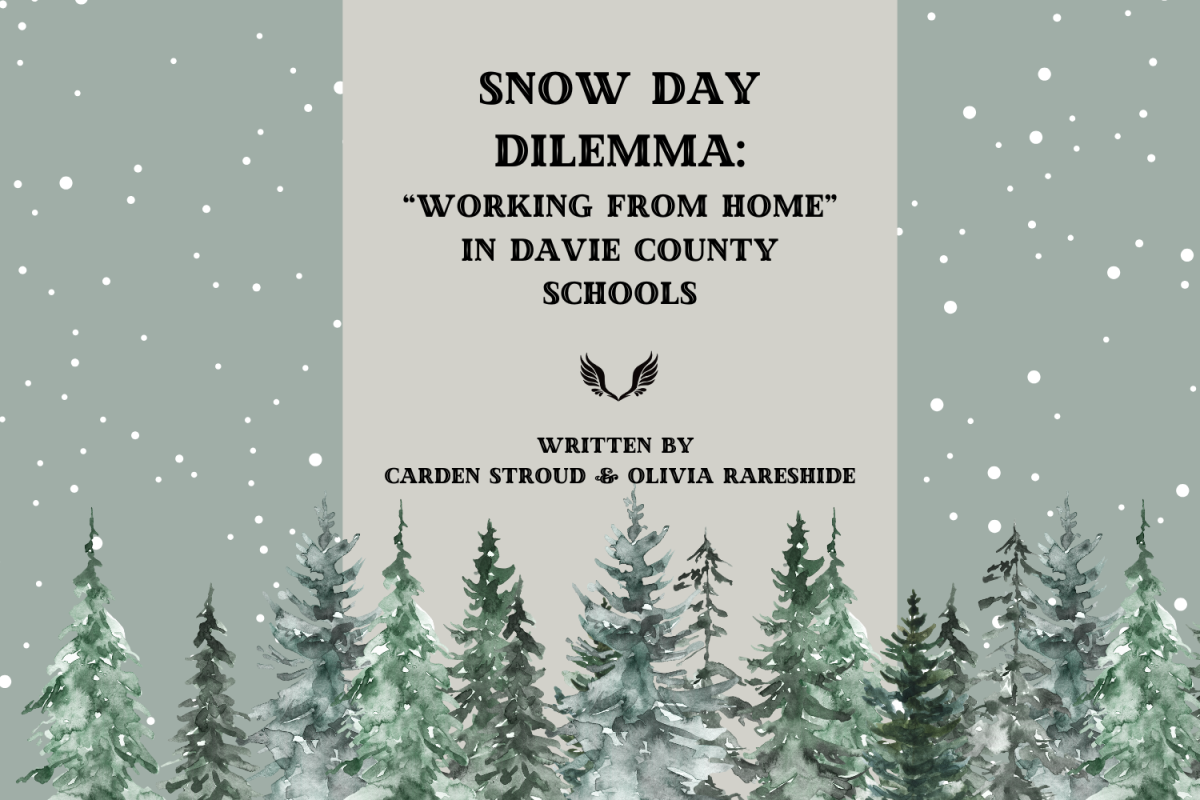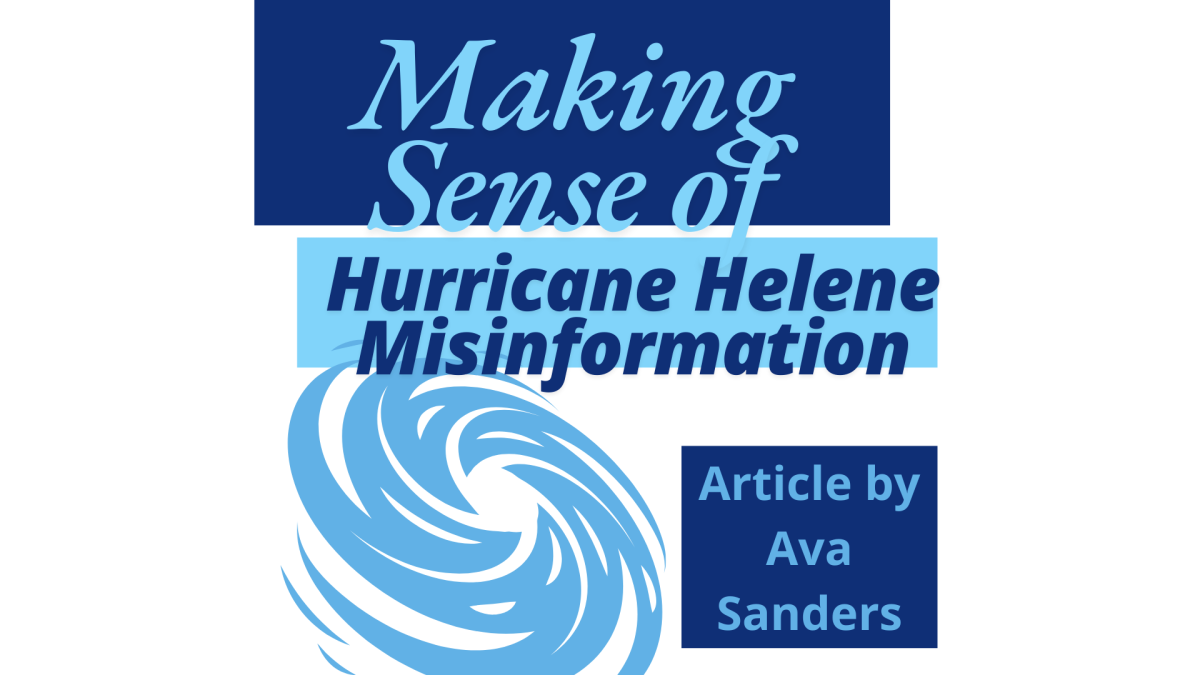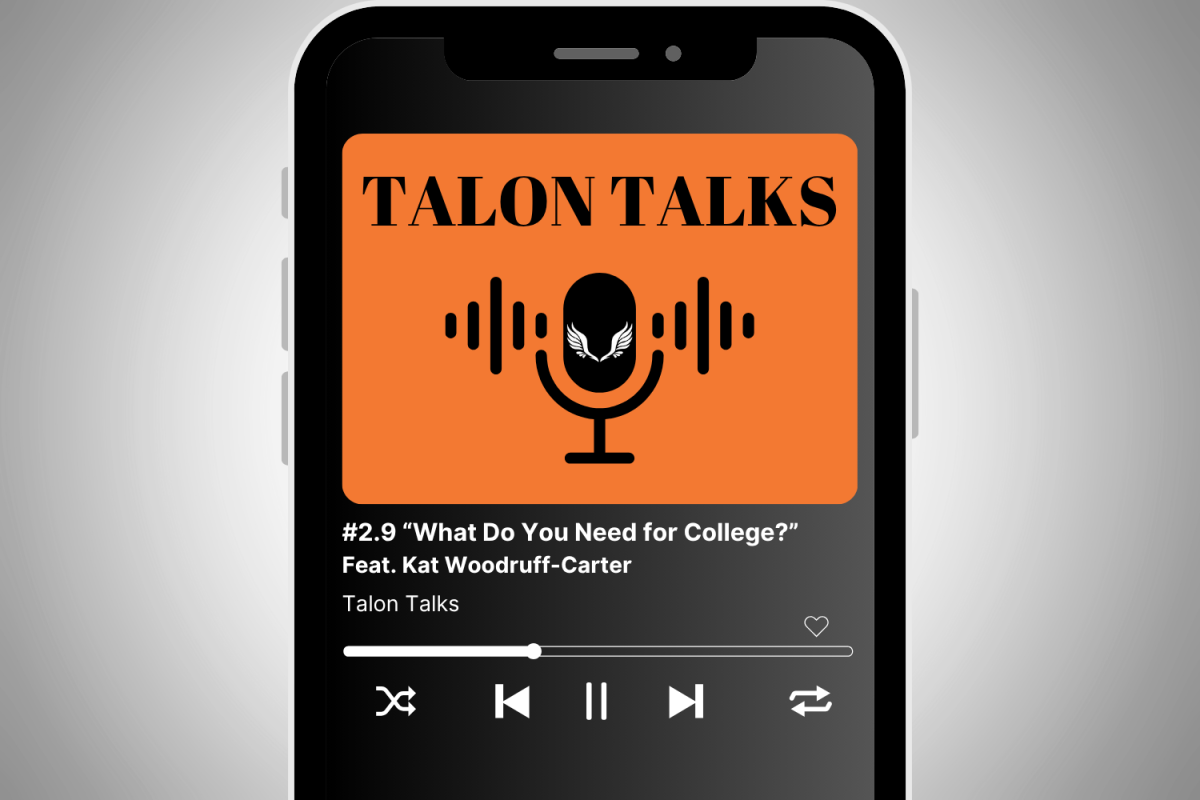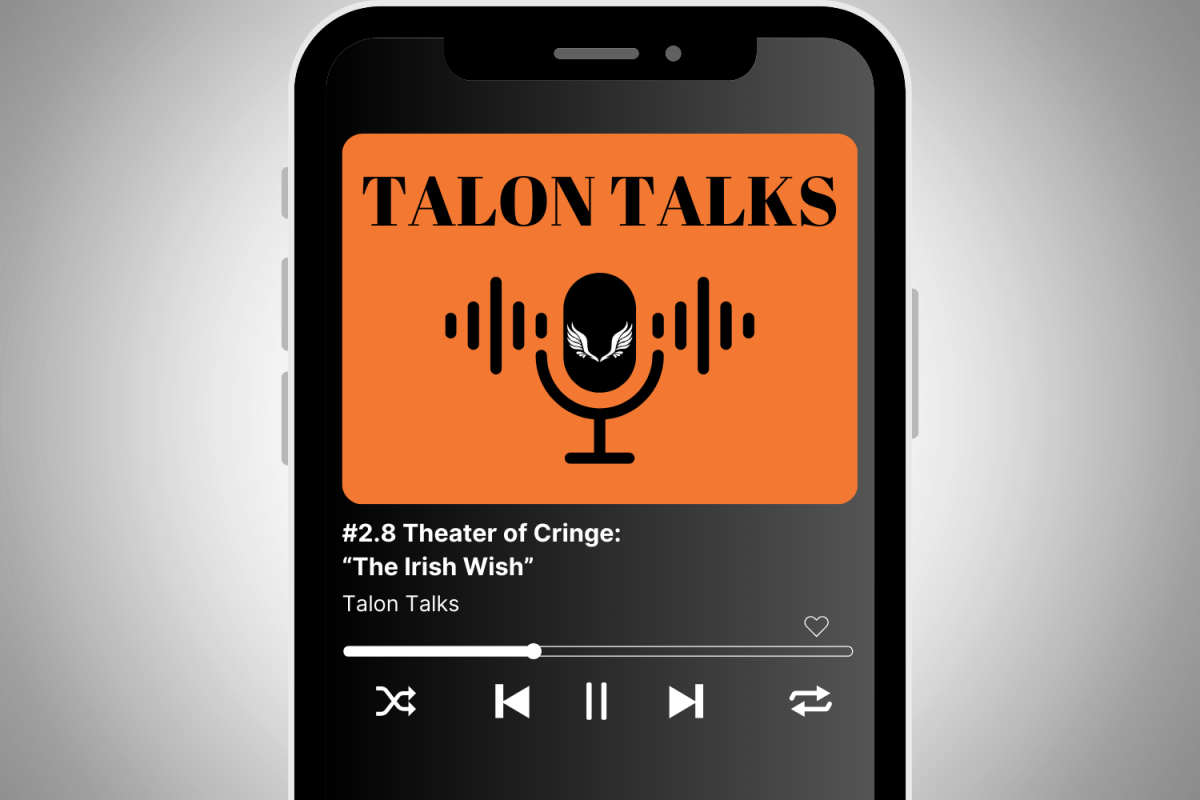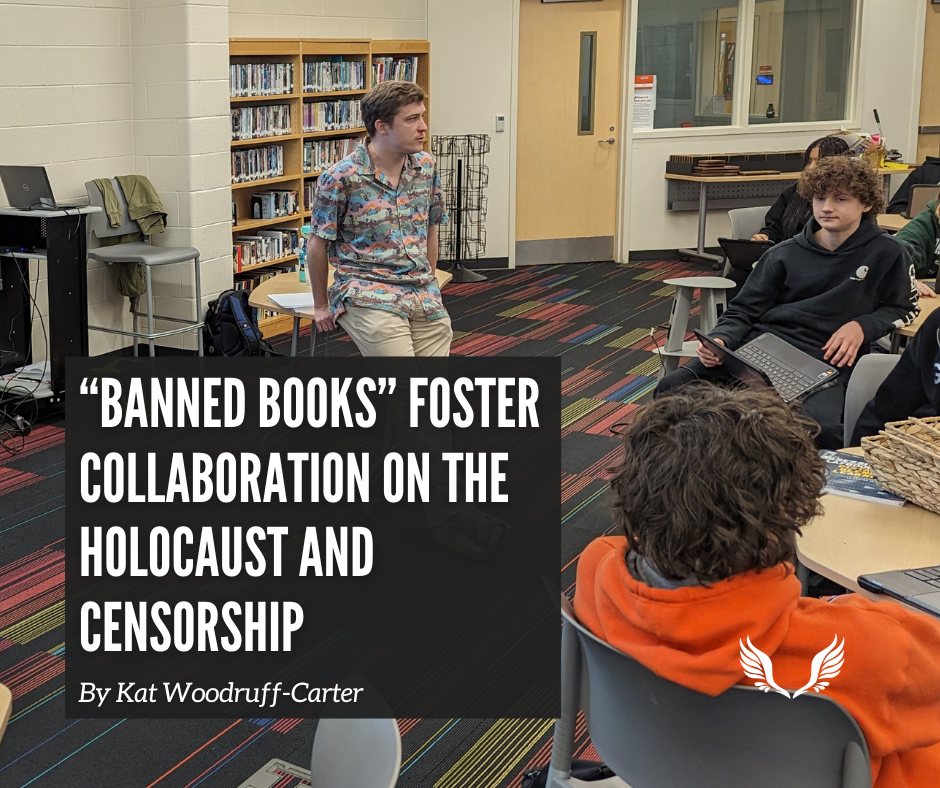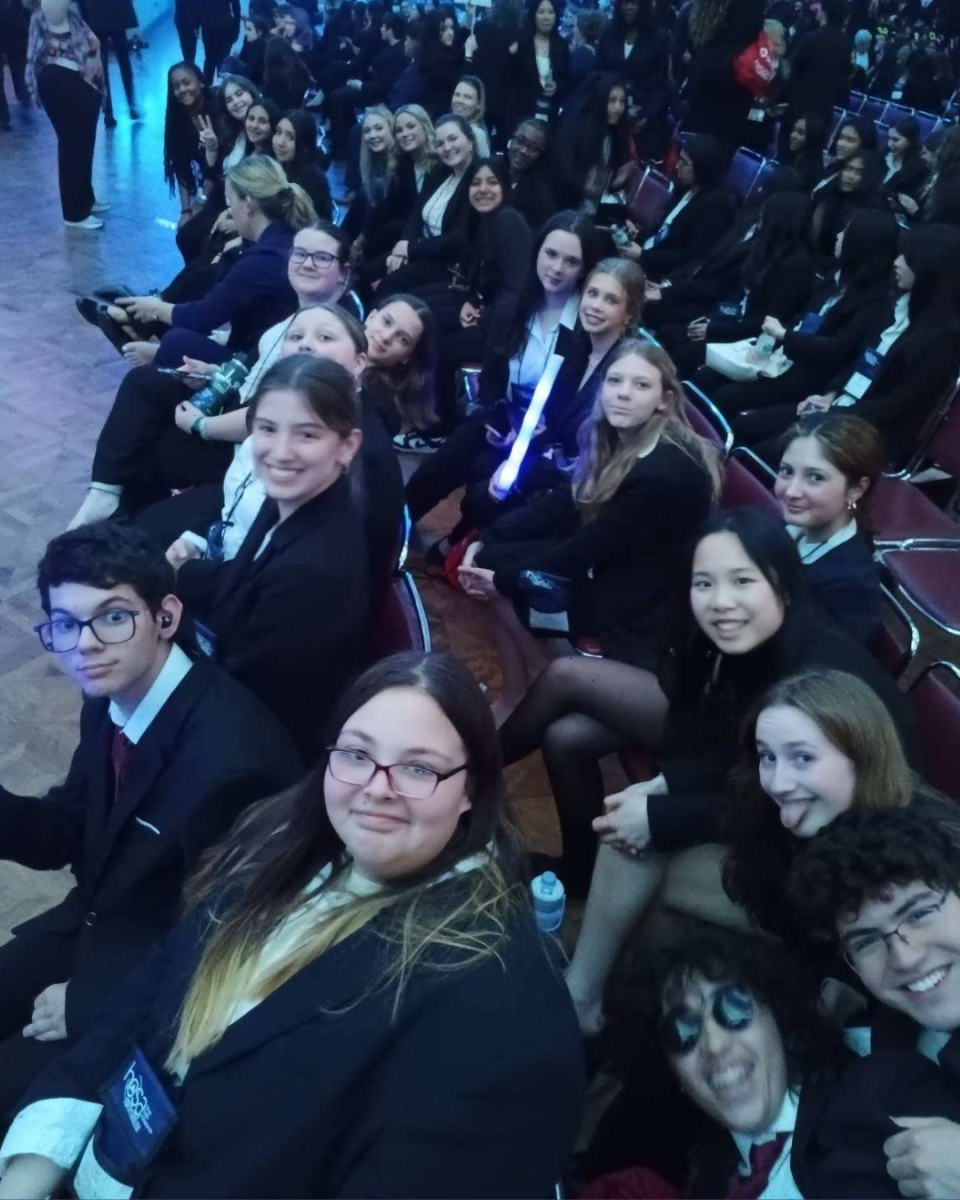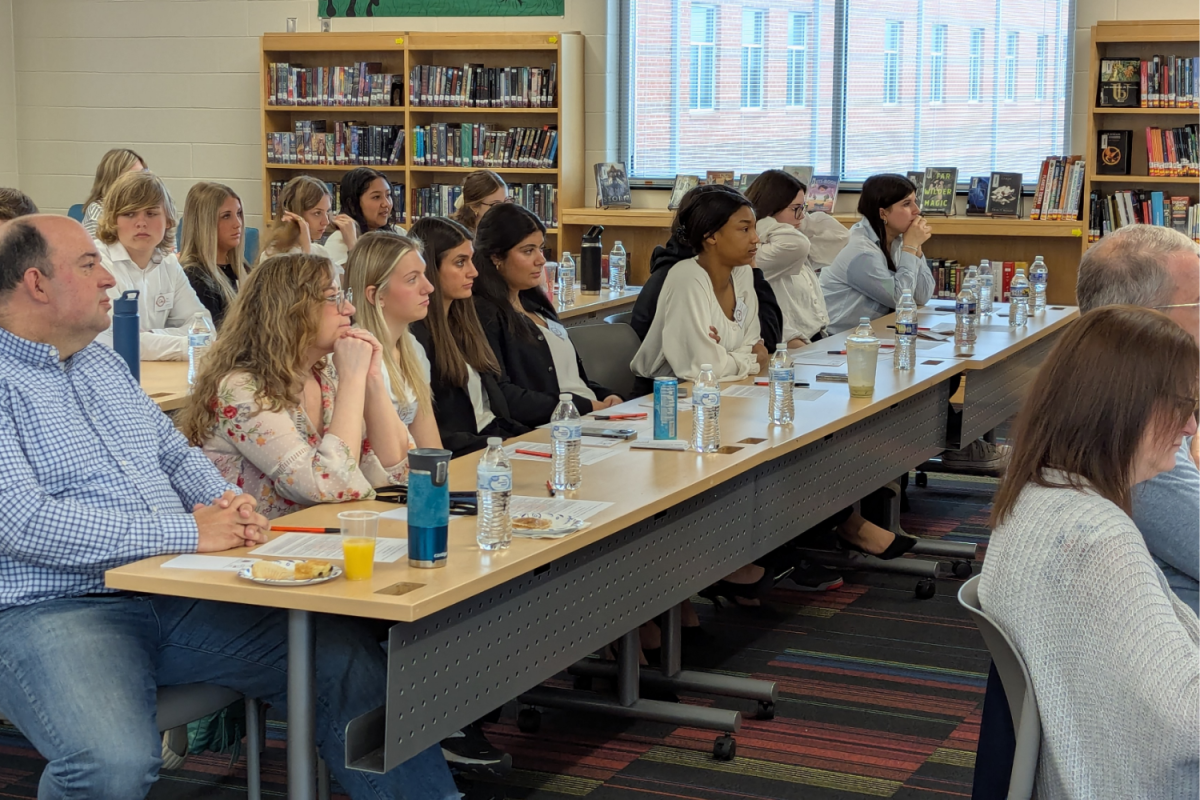History teacher Zach Wood stands in front of a group of freshmen in Jessica Grubb’s English I class at the end of a class period discussing one of the darkest moments in world history: the Holocaust. Following a class period that traced the origins of this tragedy to the ultimate deaths of millions at the hands of the Nazi regime, Wood leaves this group of students with a final question to ponder: “How do you think Society let such a genocide occur?”
There is no easy answer to this question; their students must have the opportunity to wrestle with questions like these, as well as many more complex and controversial subjects. Wood and Grubb decided to collaborate on a lesson to help students wrestle with these difficult questions.
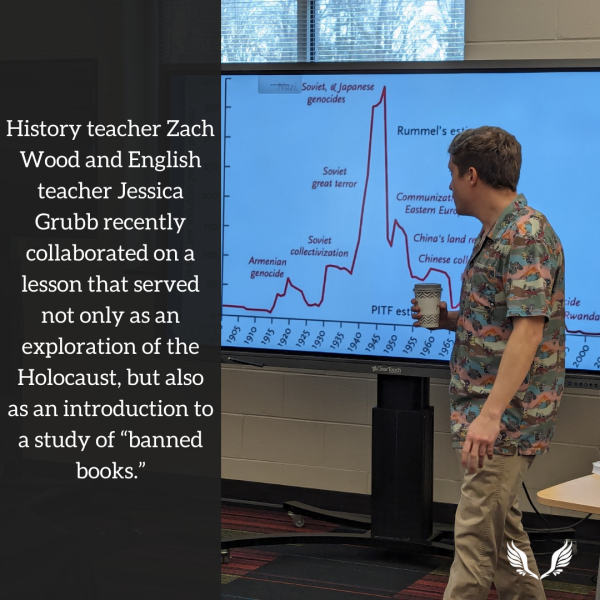
This collaborative lesson served not only as an exploration of the Holocaust but also as an introduction to a study of “banned books” that Grubb implements in her classroom. This lesson prepared Grubb’s students for the reading of one of their potential “banned books,” the graphic novel Maus by Art Spiegelman, which depicts the Nazis as cats and the victims of the Holocaust as the mice that the Germans believed them to be. Spiegelman wrote the book to record his father’s experience as a Jewish individual and Auschwitz survivor. The McMinn County, Tennessee school board recently banned the book from its eighth-grade English language arts curriculum.
“I introduce the banned books literature circle by telling them that when authors write novels or tell stories that others deem to be controversial, it is typically because these authors have found and/or experienced something profound that bothers them or they need to raise awareness for,” Grubb emphasized.
Wood, who teaches Holocaust and Peace Studies and often calls himself a historian, teaches social studies to connect with the past. He talks to veterans and Holocaust survivors while documenting this on YouTube or inviting veterans to talk in his classroom. He also sends classes to see Holocaust survivors speak.
Wood loves teaching social studies because it allows him to showcase to students why the world is the way it is. Even after teaching for eight years, Wood still quite often gets emotional due to how difficult the topics are. He struggles to wrap his mind around how people can view another human as less than equal to them and want to eradicate them and their entire culture.
“It can be very hard to talk about the actual killing and the process of how the killing happens,” Wood said. He also finds it difficult to talk about how the United Nations, which has published a multitude of works on how to deal with genocide, hardly ever acts to stop genocide. Wood included a multitude of graphic images, including how women and children were killed. Wood believes that “With the Holocaust, the graphic images/evidence are necessary to understand what Jews, Communists, homosexual men, those who were physically and mentally disabled, and others went through.”
He has a goal of showing evidence of the Holocaust, so others will not deny the Holocaust or claim it was exaggerated. “If I only teach the content and do not show the graphic nature of the Holocaust I am doing a disservice to the victims and survivors, but also opening the door for people to doubt the Holocaust simply because there is no evidence in the presentation,” Wood said.
Grubb finds it important that students tackle the emotional aspect of the Holocaust and not just the factual material. “It is complex and deep, but I have noticed that students are highly interested in it; so, when I introduce a novel centered during WWII and the Holocaust, they are more eager to read it,” Grubb said. “It overlaps with the English curriculum by challenging students to utilize critical thinking skills to reflect on the past and examine how the world has progressed since then.”
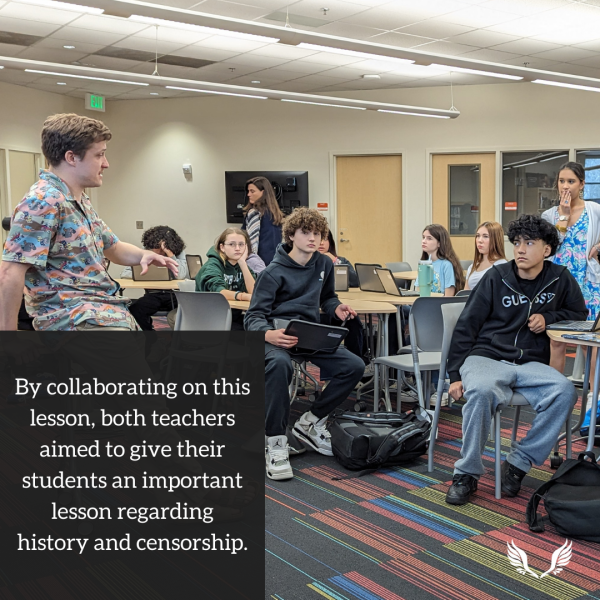
Returning to the question of how the world let this genocide happen, Wood believes the answer to this question depends on several factors, chief among them being the spreading of propaganda and misinformation
“The Nazis capitalized on pre-existing notions of anti-semitism that were evident throughout Europe,” Wood said. “Coupled with how successful the Nazi’s propaganda machine was and how well the Nazis were at controlling information being sent and available to the public, it was very easy for genocide to take place due to simple brainwashing.” He also mentioned how the Nazi party successfully controlled all radio stations and newspaper agencies by 1934, giving full control of the media and education to further brainwashing individuals.
He also spoke about ways Nazi soldiers tried to get out of punishments for their crimes. Wood believes that all participating parties should be held accountable for what is referred to as crimes against humanity. “Even for those who played the smallest of roles in a genocide, punishment should be just and swift, because were the victims given fair judgment or were they wrongfully accused of the crime of being Jewish, Cambodian, Tutsi, indigenous, or Congolese and systematically and brutally murdered just for existing?” stated Wood.
Jessica Grubb hopes to combat the spread of censorship and misinformation through teaching books that some seek to keep from students. Her “Banned Books Literature Circles” are a vehicle for essential discussions of some of the toughest topics to tackle. “Teaching banned books introduces students to literary work that challenges them to decipher why the particular title might have been banned/received controversy,” stated Grubb. In addition to Maus, Grubb and her students discuss other banned books such as The Glass Castle, Looking for Alaska, and A Thousand Splendid Suns.
Grubb’s favorite book is a banned book, To Kill a Mockingbird by Harper Lee. “It has stood the test of time and is still, unfortunately, incredibly relevant and current as it was when it was written over sixty years ago,” Grubb said. “It touched my heart when I first read it at fourteen years old and is a book that everyone needs to read at least once in their life.” Grubb made a point to quote, “Real courage is when you know you’re licked before you begin, but you begin anyway and see it through no matter what.”

